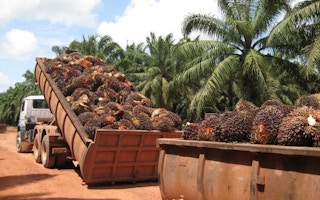Malaysia is taking its oil palm biomass resource to the next level via the formation of a dedicated Oil Palm Biomass Centre (OPBC), slated to be launched by Prime Minister Datuk Seri Najib Razaktomorrow.
A source close to OPBC told StarBiz that the centre would be monitored by a consortium comprising major oil palm plantation companies, international biochemical groups as well as local and foreign scientists from various institutions of higher learning.
“This is a very big initiative by the private sector and it is supported by the Government,” the source added.
He said the consortium partners would pool their resources in terms of funding, technology know-how and equipment to develop the latest innovations and intellectual property to create new downstream operations such as high value biobased chemicals.
A private investment of between RM20bil and RM25bil is expected within the next five to 10 years to achieve the Government’s goal for new high-value downstream operations with the creation of 66,000 new jobs by 2020.
It is believed that the consortium partners would include Sime Darby Bhd, IOI Corp Bhd and Felda as well as international groups like Purac and DSM.
According to the source, the OPBC is a useful tool to resolve technology issues pertaining to new downstream activities that can be created from oil palm biomass.
Currently, there are hundreds of technology start-ups worldwide but “many plantation players that have abundant source of oil palm biomass are afraid to take up such high risk given lack of research and proven cases for them to benchmark upon.”
Therefore, the OPBC “future” technology and intelectual property findings could pave the way for potential joint-ventures between the local oil palm plantation companies and international biochemical companies.
“The Government is strongly encouraging local plantation companies to undertake joint ventures or become stakeholders in the new downstream activities rather than just becoming a supplier to the downstream operators,” he added.
Malaysia has an abundant source of oil palm biomass of about 80 million tonnes annually, of which less than 10 per cent is being exploited.

















